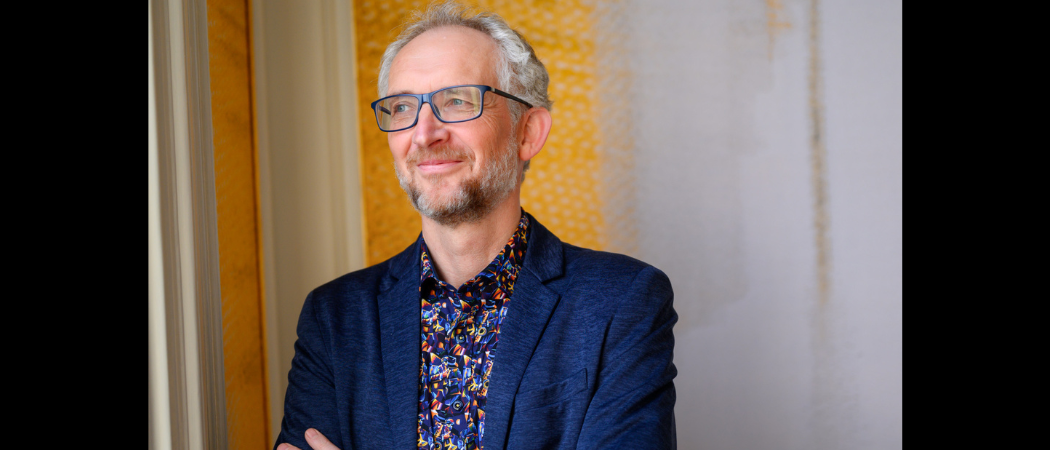Impact investing is putting private capital to work in support of the transition to a fairer and more sustainable society. But profound system change is needed to achieve this and new strategies are required

Johan Schot, founder and director of the Deep Transitions Lab at the Centre for Global Challenges at Utrecht University
Impact investing with the intention to generate positive, measurable social and environmental impact - alongside a financial return - has never been more relevant. As the effects of climate change on societies become increasingly clear, issues such as sustainability continue to gain weight in investment decisions and are aided by recent EU legislation such as the Corporate Sustainability Reporting Directive and the Sustainable Finance Disclosure Regulation.
But more needs to be done, according to the researchers and investors behind the new Deep Transitions Lab at the Centre for Global Challenges at Utrecht University and the Science Policy Research Unit at Sussex University. Along with researchers from other universities, they are studying how impact investing could more effectively tackle challenges such as climate change and social inequality.
“We want the investors to focus their investments on system change, and not system optimisation,” Johan Schot, founder and director of the Deep Transitions Lab, told Science|Business.
An example of system optimisation would be replacing combustion engines with electric vehicles, whereas system change would “rebuild the mobility system in completely new ways”, said Schot, a professor of global history and sustainability transitions at Utrecht University.
The lab is a result of the Deep Transitions project, a collaboration between Sussex and Utrecht universities, supported by UK investment management firm Baillie Gifford, and involving a global network of researchers.
Deep Transitions began in 2018 as an interdisciplinary research project, studying what Schot and his colleagues in the field of transition studies identify as the “first deep transition”.
This originated in the Industrial Revolution, which created unprecedented economic growth and shaped all aspects of society, but also sowed the seeds of current challenges such as climate change, biodiversity loss and social inequality.
Attention then turned to the future, and the research team collaborated with a panel of 16 public and private investors to investigate how investments can reshape society.
They developed a so-called ‘transformative investment philosophy’, to show private and public actors how they can bring about those changes. This includes 12 key principles, such as thinking long term, fostering interdisciplinary research, and embracing uncertainty.
The lab’s mission is to help bring about a “second deep transition”, which would subject the various systems at work in society, from food and energy to mobility, to a sustainable revolution.
European investors struggle to embrace uncertainty. But, as the lab’s research shows, failing to address climate change could also exacerbate market risks related to issues such as conflict and migration.
Radical change
“What we try to say to investors is you have no choice because the shocks we're talking about are not probable. They're coming,” Schot said.
The lab is home to a research programme which seeks to answer more theoretical questions around how radical change happens and the factors that influence it.
The lab and its partners will also undertake experiments studying the impact of specific investments in different sectors and how they could be improved to enable more systemic change.
Their findings will be made public. “This is all part of this idea that we need to build a new community of practice, what we call a niche in the finance industry,” Schot said.
Seven investment firms have partnered with the lab and others are in talks to join them. While these will have a “first mover advantage”, the ultimate goal is replication, and part of those discussions is about ensuring prospective partners buy into the collaborative ethos. “The mission of the lab is to establish a new practice, not by talking about it, but by doing it and then sharing the results.”
The partners, which include the TransCap open innovation initiative, Indian investment firm Caspian, and Swiss health investment partnership HolistiQ, will carry out experiments together with the researchers.
The areas of study range from energy and food, to healthcare and education, with an understanding that these various systems are interconnected and require change across sectors.
The lab’s strategy differs from traditional impact investing, which takes a company and looks at its impact, Schot says. Instead, the lab has identified a number of desirable futures, and seeks to understand which investments could help make these a reality.
That does not just mean identifying the right technologies, but also creating the right environment in terms of policies, industrial strategy and user preferences in which these can be successful. “Technological fixes will not work. You need a specific context, and investments need to create these contexts,” said Schot.
Full-scale transformation also requires regulatory change. Fiduciary duty, for instance, “makes it difficult for investors as it is currently often perceived, because it's focused on wealth creation,” Schot said.
He argues this should be interpreted in new ways. “In fact, it’s our fiduciary duty to focus on system change and impact, because if we don't, many of the current investments may end up as stranded assets.”
Interested investors can follow the lab’s results via its blog, or contact the team about becoming a partner.





 A unique international forum for public research organisations and companies to connect their external engagement with strategic interests around their R&D system.
A unique international forum for public research organisations and companies to connect their external engagement with strategic interests around their R&D system.